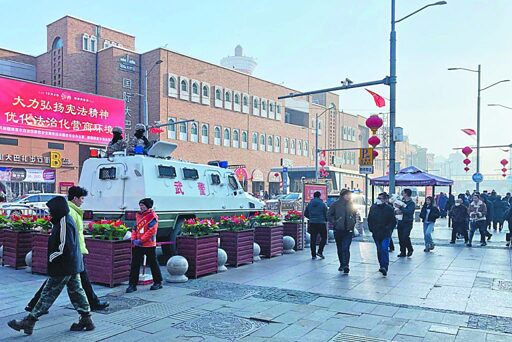cross-posted from: https://lemmy.sdf.org/post/31842458
About a decade ago, some Western companies answered Beijing’s calls to invest in Xinjiang, an underdeveloped region in the country’s remote west. Some were drawn by the natural resources there. Others eyed the political points they could score with China.
Today, many of those projects are dead or have been sold off. A visit by a Wall Street Journal reporter earlier this year to Urumqi, Xinjiang’s capital, found that the site of German carmaker Volkswagen —which was especially eager to invest in the region a little over a decade ago—sits lifeless. The factory, in Urumqi’s Toutunhe economic development zone, was recently sold. The carmaker and its joint venture partner SAIC Motor’s names have been scraped from the gate, leaving a blurry mark.
[…]
Over the years, Xinjiang, home to millions of Turkic-speaking Uyghurs and other predominantly Muslim ethnic minorities, has become synonymous to some in the West with Beijing’s ruthless clampdown on ethnic minorities. The Chinese government has targeted the minorities in Xinjiang with mass-detention internment camps and omnipresent surveillance as part of a forcible assimilation campaign. China portrays the campaign as an effort to fight religious extremism and terrorists.
[…]
From clothing companies to automakers, businesses have shunned Xinjiang.
“Xinjiang has not only become a place not to invest, but even bidding on projects there or otherwise selling into the market there has become off limits,” said William Zarit, a senior counselor at business consulting firm Cohen Group and a former chairman of the American Chamber of Commerce in China.
[…]
Surveillance is commonplace throughout China, but the scale is far larger in Urumqi [Xinjiang’s capital]. Security, including surveillance cameras and special police outposts that have mushroomed in recent years, is heavy throughout the city. Sign posts bearing the local emergency services number, along with a six-digit number identifying the location, stand in front of mosques and other spots, so police can respond immediately to calls. Shoppers entering a large market in the city center were subject to airport-like searches.
Continued control of the Muslim population is evident. At a mosque in the center of Urumqi, the patriotic slogan “Love the Country, Love the Religion” was affixed to the building. Nearby, a red banner hung, which read in Chinese “Love the Party, Love the Country, Love Socialism.”
[…]
Multinational firms soon came under pressure to eliminate forced labor from their supply chains. Volkswagen’s investment in Xinjiang came around a time when the company was expanding in China.
But as Beijing’s crackdown on Xinjiang became apparent, Volkswagen came under pressure. Top executives tried to strike a balancing act. At home, they sought to avoid reputational blowback from investors, consumers and an influential trade union, which holds a seat on the company’s supervisory board.
[…]
In November, Volkswagen said it would sell the Urumqi plant to a state-backed car inspection business. By then, Volkswagen had been surpassed in sales by Chinese electric vehicle maker BYD. BASF is in the process of divesting two plants in Xinjiang, a process that dragged on for a year. Air Liquide’s project there was canceled before it was implemented. Peabody Energy stopped referring to its Xinjiang project in its financial filings after 2014, when it said it intended to advance projects in Asia including “studies underway in Xinjiang.” The company declared bankruptcy in 2016 as tumbling prices crushed the American coal industry, then exited Chapter 11 a year later. It declined to comment.
[…]
These days, China is turning to Central Asia for investment in Xinjiang. The Toutunhe economic development zone, which once touted the Volkswagen investment as a leading project, is busy these days hosting potential investors from Central Asia. Authorities have been building a financial services center in the zone, targeting Central Asian firms.
Last year, authorities signed a memorandum of cooperation with a Kazakh business chamber. In January, officials from Uzbekistan signed a technology and talent exchange cooperation agreement with several Chinese companies in the zone.


